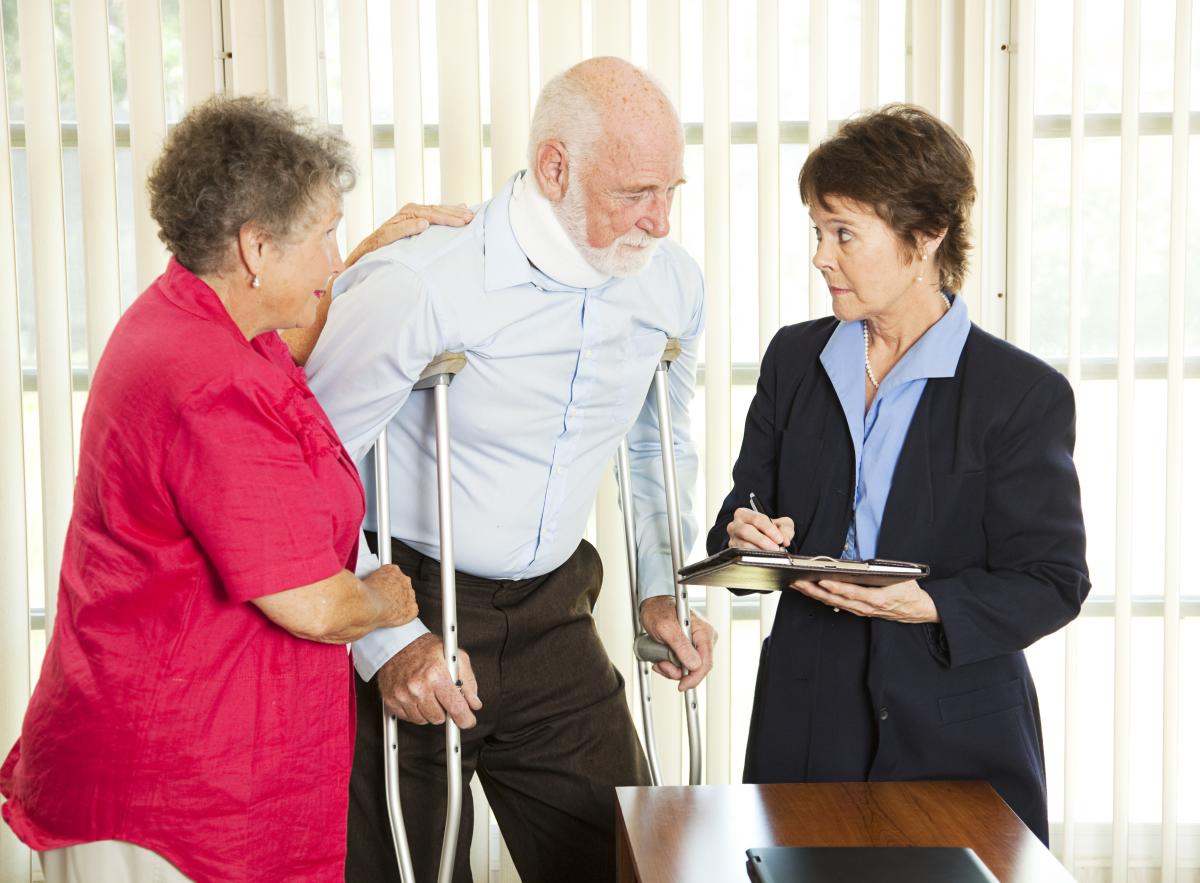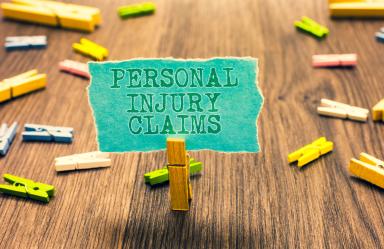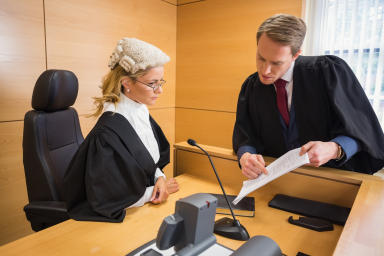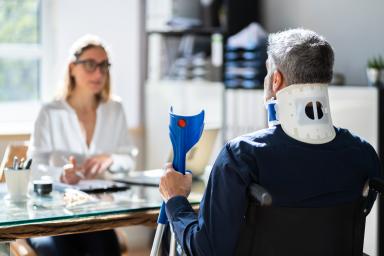What To Do After Your Injury: A Step-by-Step Guide

While the Law Dictionary estimates that 95% of personal injury lawsuits end in pre-trial settlement, they also state that 90% of accident claims that do go to court end in a favorable judgment for the plaintiff. Therefore, if you file a claim, the chances of receiving compensation for your injuries are high. But how should victims proceed from the time of their accident until their case is brought to court?
In this guide, we will discuss what accident victims should do at the scene of the incident, immediately following the incident, and in the long run regarding legal action. If you have further questions regarding your accident claim, please get in touch with your personal injury attorney or refer to the resources below.
What To Do at the Scene of the Incident
In the immediate aftermath of an accident, victims may be unsure of what to do before leaving the scene. At the scene of an accident, victims should take the following actions to make sure they are prepared to file a personal injury claim later on.
Remove Yourself From Harm’s Way
First and foremost, you should remove yourself from immediate danger to prevent further injury. If you are operating a vehicle, put the vehicle in park and exit. Whatever caused your accident, it is best to remove yourself from any dangerous conditions (though it is also important not to immediately leave the scene of the accident before taking the following steps).
Assess Injuries
Did you sustain any injuries in the accident? A severe accident can cause life-threatening injuries. If you sustained severe injury in the accident, you should call 911 immediately to seek emergency medical assistance. If you suffered no injuries or minor injuries, you could wait to seek medical attention until you have collected any necessary information.
Collect Information
Now is the time to collect vital information that will help you seek compensation later. For example, you will need to get the contact information of everyone involved in the accident in addition to any insurance information. It’s best to speak with eyewitnesses to the accident immediately, it may be difficult to track them down later, and their memories of the incident may be less clear.
Alert Law Enforcement
You must report the incident to law enforcement or local authorities if someone is seriously injured. For example, local police should be called to respond to a car accident if anyone sustains injuries or the vehicles are blocking traffic. If you leave the scene and are unsure if you should have reported the accident, you can call the local police department or visit their website to fill out an accident report form.
Record Your Memories of The Accident
Finally, record your version of events on the same day as your accident to avoid forgetting key details. These details can be factually corroborated by the information you collected at the scene of the accident. Write a narrative of what happened before, during, and immediately after the accident. Over the coming weeks, you will be asked many questions by insurers and attorneys, so it is in your best interest to make sure your memory of the incident is clear.
What To Do After Leaving the Scene of Your Injury
Once you are home from the accident or are no longer hospitalized, there are a few actions you need to take in the following weeks. These actions will build the foundation for a successful injury claim.
File Report with Insurance
You should contact your insurance company as soon as possible to notify them of your accident. Most insurance companies have a simple process for submitting insurance claims. If you collected insurance information at the time of your accident, relay that information to your insurer.
Document Existing or Developing Injuries
Not all injuries sustained in an accident are immediately obvious. Injuries can worsen over the following weeks, or you could discover hidden injuries weeks after the accident. Whatever injuries you have suffered, it is important to keep careful documentation. For example, you should compile all written records of doctor diagnoses, copies of all your medical bills, and documentation of treatments and prescriptions.
Document Financial Losses
Accident victims have the right to seek full compensation for the costs related to accident injuries. The reality is that treatments for severe accidents often come with a hefty price tag. Any costs associated with your accident (including medical bills or lost wages) should be carefully documented so that you can establish the extent of your economic damages.
Do Not Discuss Your Accident
To protect yourself, only speak about your accident to those closest to you. It is important that you avoid making public posts on social media regarding the accident. The defendant’s attorney may be able to use your public posts as evidence against you in court. To be safe, only discuss the details of your accident with medical professionals or your legal representatives.
How to Start a Personal Injury Lawsuit
Once you’ve had time to settle your affairs and heal from your injuries, it is time to explore your legal options. The following steps will get you started on the process of filing a personal injury lawsuit.
Schedule Legal Consultation
The first step to starting a personal injury lawsuit is finding the right personal injury attorney. After making all the necessary reports and receiving medical attention, it is time to begin scheduling initial consultations to review your case. Initial consultations are generally free of charge and carry no obligation to hire the attorney in question. Therefore, you can schedule your case review without worrying about financial obligations.
Hire Experienced Personal Injury Lawyer
In your initial consultation, there are a few points you need to determine before making a final decision. First, does the attorney have prior experience representing accident victims like you? Secondly, does the attorney specialize in personal injury law in your state? If the attorney has the requisite expertise, specialty practice areas, and availability, you can officially hire them as your legal representative.
Finalize Estimate of Damages
Before you can make a claim for damages, you and your attorney will need to estimate the full worth of your economic and non-economic losses. As you have already spent time documenting the full extent of your injuries and financial losses, you can present this evidence to your attorney to help them calculate the worth of your claim. Your attorney may also counsel you to claim other damages related to your accident in your claim, including compensation for pain and suffering damages.
Review Settlement Offers with Attorney
The defendant’s insurer will most likely get in touch to offer an initial financial settlement. Before you accept any compensation from the defendant or their representatives, make sure to consult with your attorney to make sure you are getting a fair offer. In most cases, your attorney will negotiate your settlement with the defendant’s representative to ensure you get fair compensation for your injuries. Most personal injuries are settled outside of court. However, you may be forced to explore other options if your attorney cannot get the defendant to agree to a fair settlement.
Take Your Claim to Court
If the defendant and their representation do not offer you an adequate settlement, your personal injury attorney may counsel you to take the case to court. Taking your case to court will ensure that a judge and jury are presented with all the evidence you have collected that establishes the defendant’s liability for your injuries.
Legal Resources for Injured Folks
If you have been in a dangerous accident, the process of filing a personal injury lawsuit while healing from your injuries can seem intimidating. However, a variety of organizations exist specifically to guide accident victims through the case filing process. If you are unsure what to do after your accident, the following resources can help you explore the full extent of your legal options.
Lawhelp.org
Have you been denied access to quality attorneys due to your income status? Lawhelp.org helps accident victims find local legal aid and low-cost legal help. They offer access to their resources in both English and Spanish to help as many accident victims as possible. To find legal resources near you, use lawhelp.org’s Legal Help Finder tool to find legal guidance and further resources in every state.
Local Bar Associations
Each state has an American Bar Association (ABA) location. The American Bar Association is a volunteer organization that sets standards for legal education and practice throughout the country. Local ABA offices provide access to volunteer lawyers, pro bono projects, legal workshops, and clinics. Visit legalhelp.org to find free legal help for low-income individuals, legal representation for military members and their families, and referrals to affordable local attorneys.
Stateside Legal
Many resources exist to provide free legal services exclusively to veterans, active service members, and their families. The Veterans Consortium and Legal Services Corporation have partnered with Stateside Legal to help accident victims in the military get the help they need. Stateside Legal offers many self-help guides to common legal issues as well as a Find Legal Help tool that filters legal resources by location.
Expertise.com StaffAuthor
Step into the world of Expertise.com, your go-to hub for credible insights. We don't take accuracy lightly around here. Our squad of expert reviewers, each a maestro in their field, has given the green light to every single article you'll find. From rigorous fact-checking to meticulous evaluations of service providers, we've got it all covered. So feel free to dive in and explore. The information you'll uncover has been stamped with the seal of approval by our top-notch experts.




